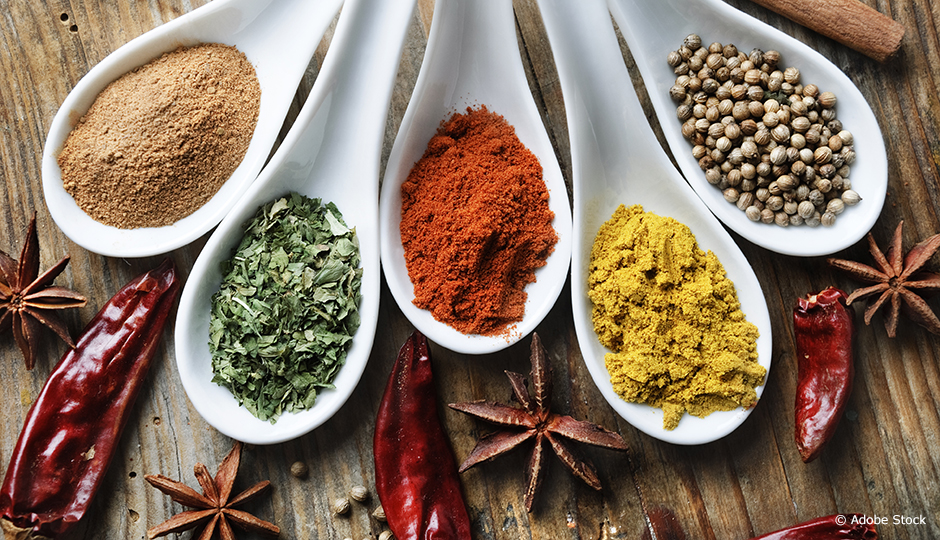Since 2009, the World Cancer Research Fund has warned against feeding processed meats to children due to the presence of nitrites and nitrates, synthetic or natural preservation agents associated with an increased risk of cancer. Luckily for fans of cold cuts, Satinder Kaur Brar, a researcher at the INRS Eau Terre Environnement Research Centre and her colleague Khaled Belkacemi, from Université Laval, have found healthier alternatives among certain spices used in cooking.
Cinnamon, black pepper and cloves were selected to replace current preservation agents.
In many countries, such as India and China, spices have been used to preserve food for centuries. Like nitrites and nitrates, some spices are able to block the growth of bacteria and the oxidation of fats. Satinder Kaur Brar and her team analyzed the antimicrobial and antioxidant properties of a number of spices, alone and in combination, for the preservation of terrine and ham. They were careful to remove all natural sources of nitrites and nitrates, such as celery salt, currently used in the food industry. They then adjusted the dose of the spices, in order to determine the minimum quantity necessary to prevent the deterioration of the meat.
The result: cinnamon, black pepper, grape powder and cloves were selected, alone or in combination, to replace current preservation agents. The appetizing pink colour of processed meat was obtained by adding a powdered Québec fruit to the preparations concocted by the researchers. After meeting the approval of consumers in taste and texture tests, the highly confidential recipes were handed over to agri-food partners who are working on “cooking” them up on an industrial scale.




